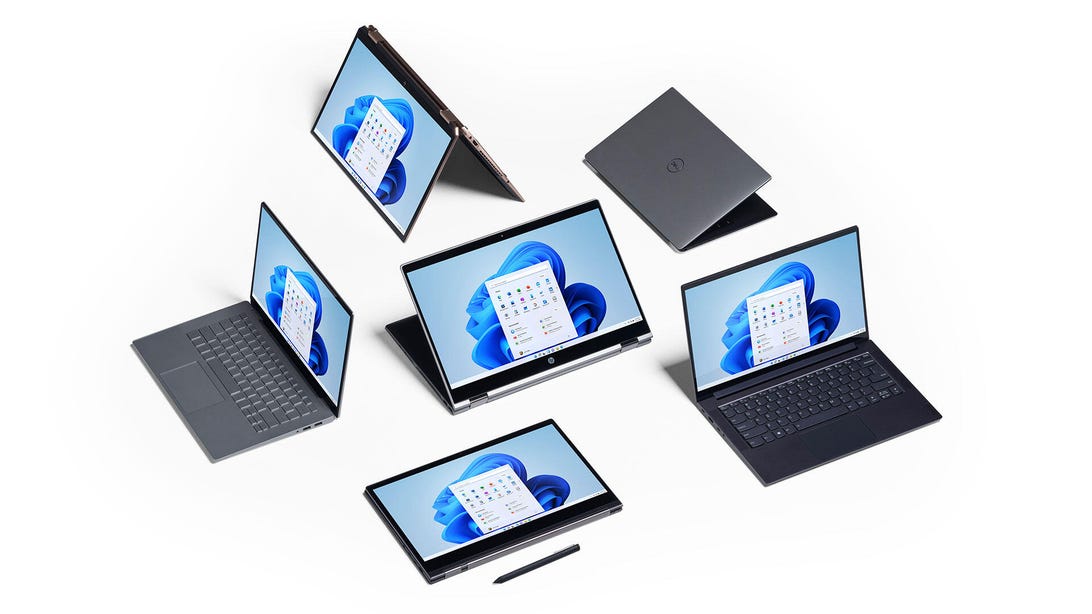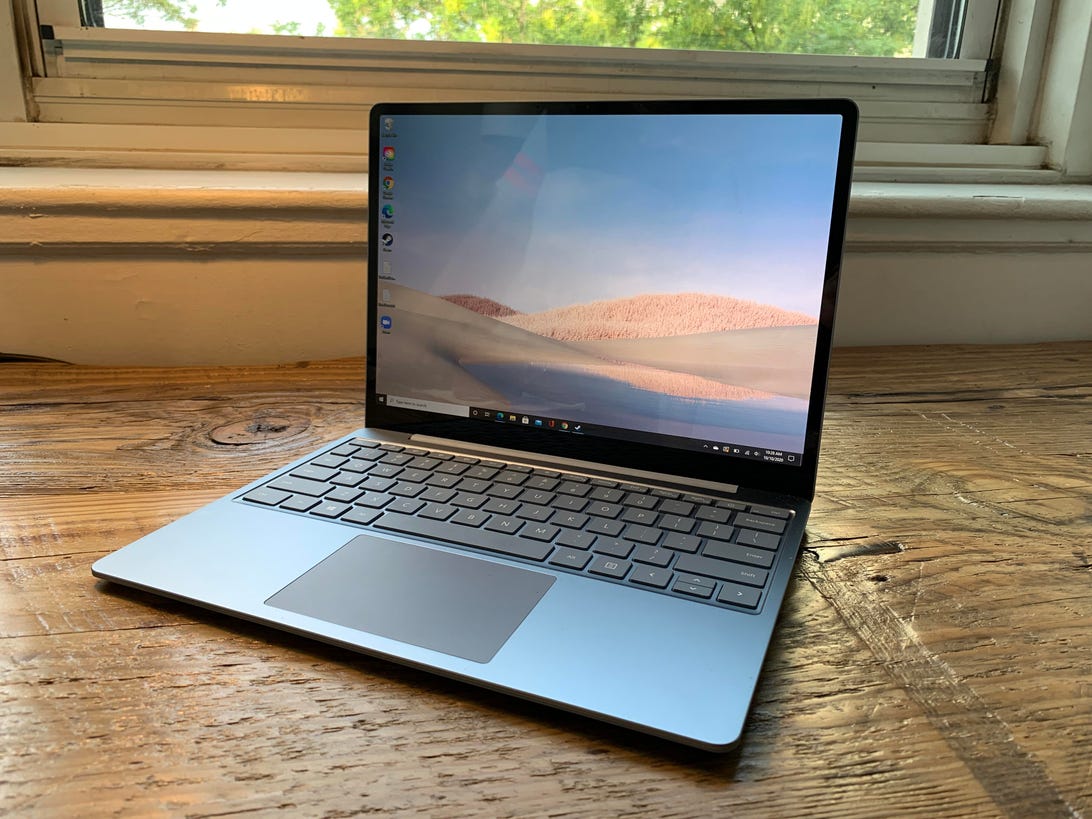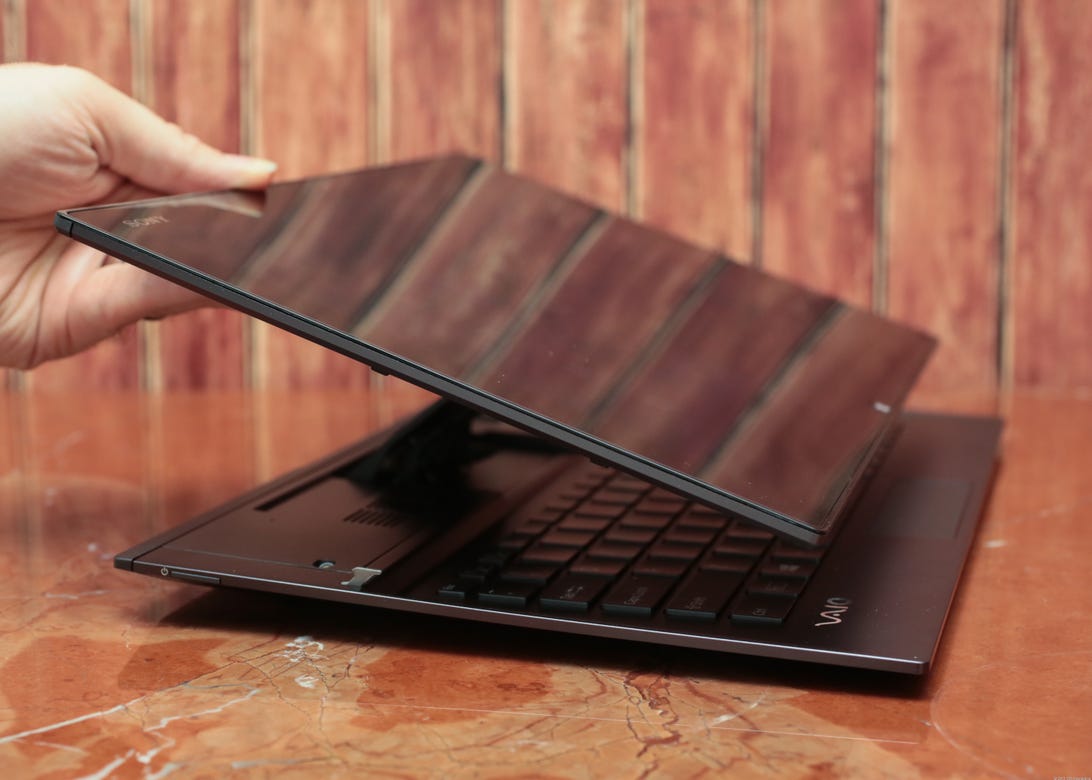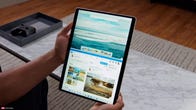
Microsoft
It’s one of the biggest technology buying hangups: Is my new purchase going to be immediately obsolete? Or at least outdated? That kind of FOMO can lead to long delays in buying a laptop, phone or tablet, always waiting for the next update or upgrade. With the announcement of Windows 11, laptop and desktop shoppers are in this familiar situation.
Here’s what we know so far. Windows 11 is coming Oct. 5, though not to every PC right away. (You may have to wait until mid-2022 to install it.) The system requirements as outlined by Microsoft would seem to cover nearly any Windows PC sold today. To make sure Windows 11 will work on your current computer, you can install Microsoft’s PC Health Check here. Must-haves for Windows 11 include at least 4 gigabytes of RAM, 64GB of storage and a 720p display measuring over 9 inches diagonally. The company also says, “Windows 11 Home edition requires internet connectivity and a Microsoft account to complete device setup on first use.”
Here’s a full list of the system requirements for Windows 11.
Windows 11 system requirements
| Spec | Requirement |
|---|---|
| Processor | 1GHz or faster with 2 or more cores on a compatible 64-bit processor or system on a chip |
| RAM | 4GB |
| Storage | 64GB or larger storage device |
| System firmware | UEFI, Secure Boot capable |
| TPM | Trusted Platform Module (TPM) version 2.0 |
| Graphics card | Compatible with DirectX 12 or later with WDDM 2.0 driver |
| Display | HD (720p) display greater than 9 inches diagonally, 8 bits per color channel |
| Internet connection and Microsoft account | For Windows 11 Home edition: internet connectivity; Microsoft account to complete device setup on first use For all Windows 11 editions: internet access to perform updates and to download and use some features; Microsoft account for some features |
Read more: How to check whether your laptop will run Windows 11
The OS upgrade calculation
For Mac and iPhone or iPad users, the annual operating system upgrade has become largely seamless. Changes are generally incremental and downloading and installing the updates is easy. And because there are only a handful of hardware variations, all made by Apple, there are few (but not zero) compatibility problems.
Read more: Who should buy a new Mac now and who should wait
But there have always been legit reasons to keep your old hardware on its current OS and not upgrade. The switch between Windows 7 and Windows 8 was… rocky. Many people skipped Windows 8 and held out for Windows 10, which was much better. Some of those holdouts even resisted Windows 10, with some valid concerns.

Microsoft also makes its own line fo Surface PCs, including the Surface Go.
Dan Ackerman/CNET
Reasons to buy a laptop now
Since its launch in 2015, major Windows 10 updates have all gone smoothly on any PCs I’ve used or tested. As Windows 11 appears to be a modest overall update, focused in large part on the appearance of menu bars and grouped windows, I — at this moment — have no qualms about buying a Windows 10 laptop now and waiting for the free Windows 11 update later this year.
You can also easily stick with Windows 10 for now, if you’d rather. That OS will continue to be supported with updates and patches (and most importantly, security updates) until at least 2025.
The gaming updates coming to Windows 11 are mostly based on the Xbox app, and any updates there should come to Windows 10 as well. And if you upgrade to Windows 11 later, I don’t see any reason it should affect gaming hardware.
If you’re thinking of buying a new laptop now, I don’t see any major CPU/GPU updates coming before next year that would change my mind. Nvidia’s latest 3000-series mobile chips started showing up in laptops earlier this year (although it’s possible the Ti versions of those may show up in laptops at some point).
Reasons to wait for Windows 11
Microsoft further says PC makers including Dell, HP, Lenovo and others are planning “hundreds of new Windows 11 designs” for the holiday season. In some operating system overhauls, that can mean interesting new hardware with valuable new features.
Windows 8 was a great example of that. That OS launched alongside a dizzying array of inventive (or just plain weird) new hybrid laptops designed to take advantage of the new touch features built into Windows 8.

One of the weird and occasionally wonderful new laptop designs that launched alongside Windows 8 in 2012. I don’t expect anything as revolutionary this time around.
For Windows 11, with the promise of new built-for-Windows-11 systems, there may be new design ideas and new hardware features we haven’t seen yet. But aside from potentially haptic feedback for pens, I haven’t heard anything that would make me think I’ll miss out by buying a new laptop now.
Based on what we know right now, if you’re already about to pull the trigger on a Windows laptop purchase, I think you can move forward without worrying about it. If any new information causes my opinion to change, I’ll let you know.
Additional reporting by Mary King.










